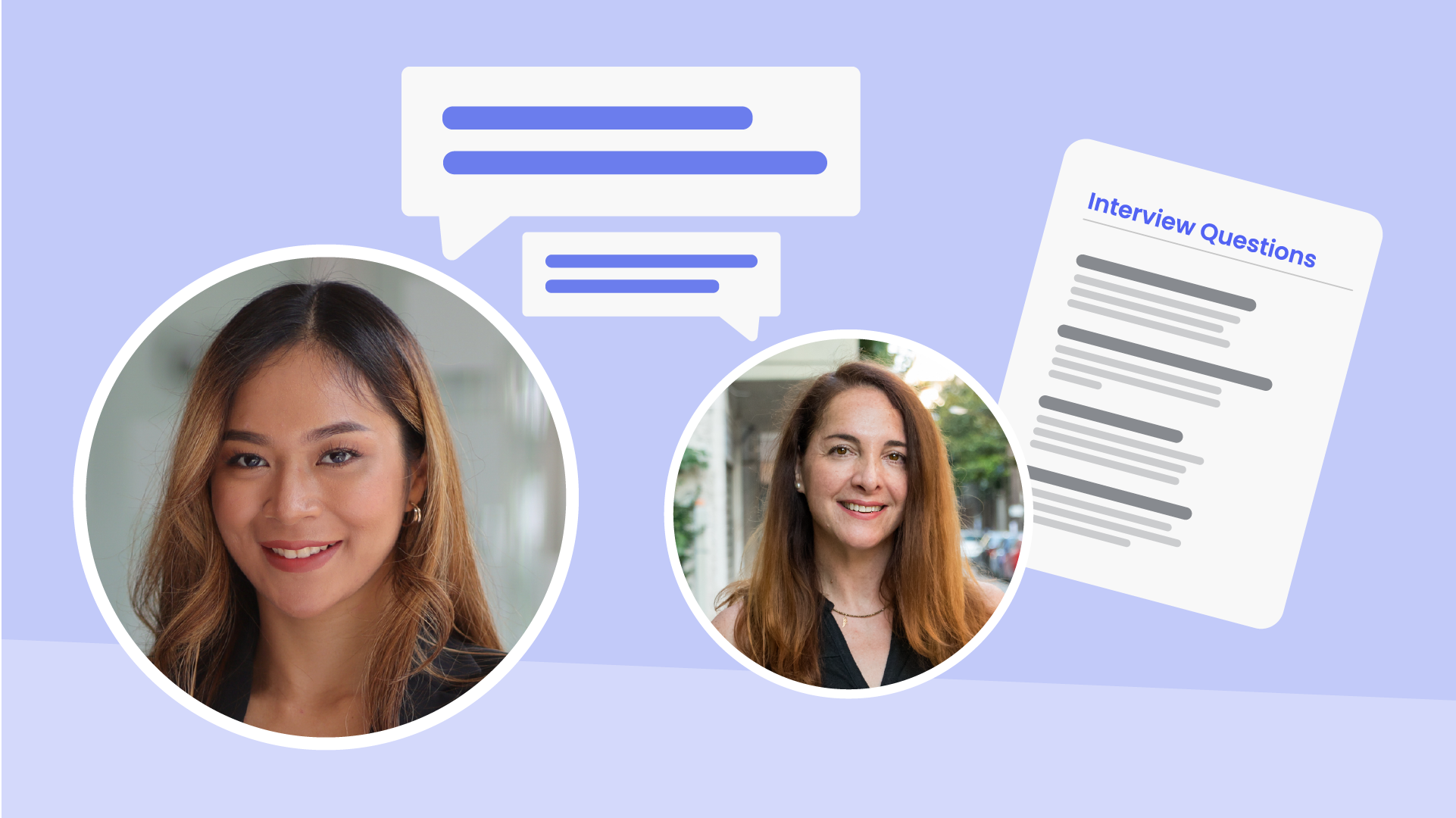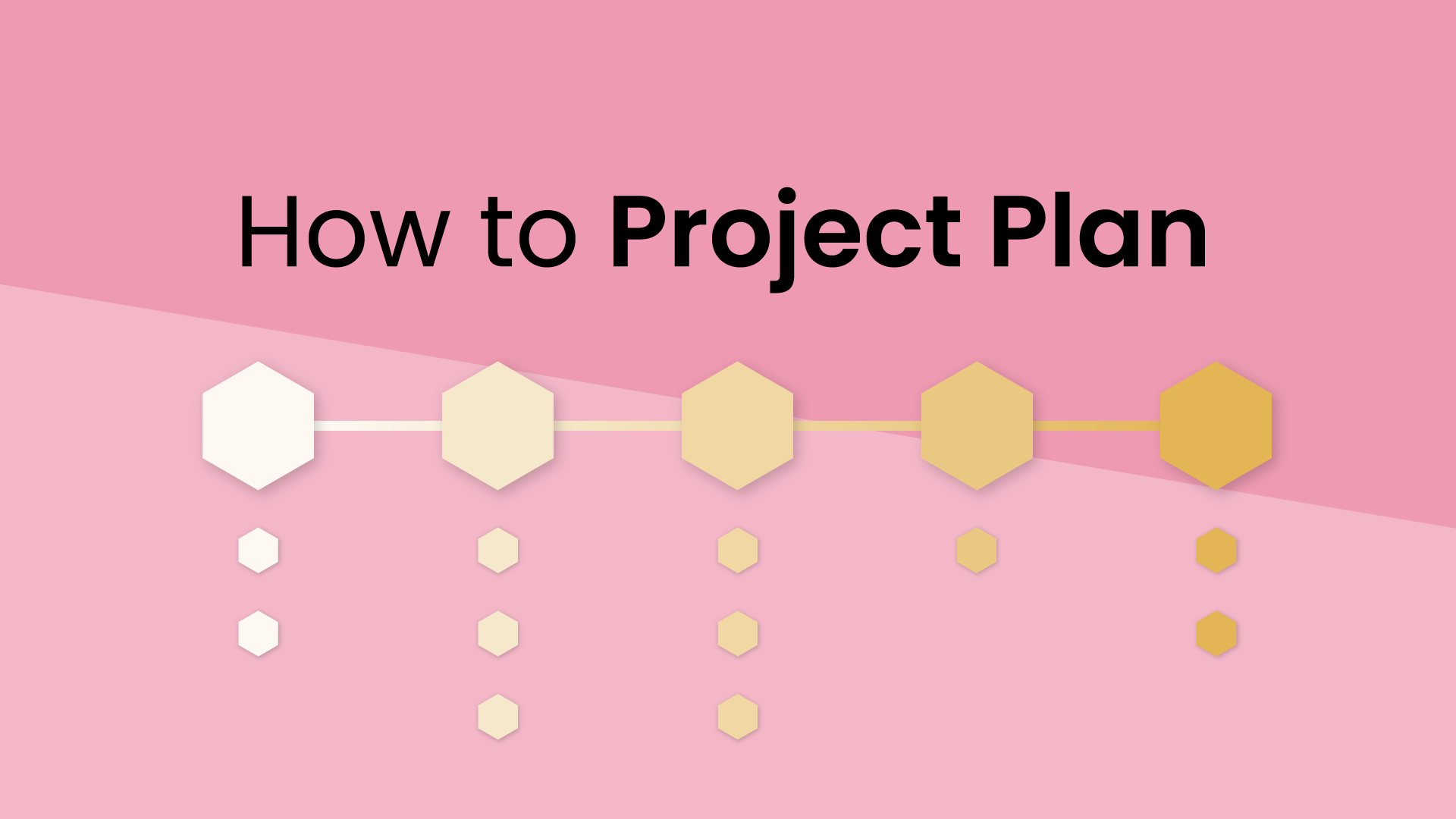

You know what they say, "behind every great executive is a great executive assistant." Or something along those lines. As executives know, executive assistants, or EAs, are what keeps organizations running smoothly behind the scenes. They are strategic partners, problem solvers, and confidants who can double an executives productivity by freeing them up to focus on their core responsibilities.
But landing that coveted executive assistant role requires more than just skills and experience – they first need to nail the interview.
Considering the access and influence that naturally comes with an executive assistant position, competition for them is often fierce. So knowing how to answer common executive assistant interview questions can give you that leg up you'd need to ace the interview and get the offer.
Top 25 executive assistant interview questions
Click each one to learn how to answer the question in an interview:
- Tell me about a time you had to manage multiple priorities at once.
- Describe a situation where you had to handle a difficult client or stakeholder.
- How do you make sure you stay organized and meet deadlines?
- Share an example of a time you went above and beyond your regular duties to support your executive.
- Describe a time when you had to adapt to a sudden change in plans or priorities.
- What experience do you have with scheduling software and travel arrangements?
- How proficient are you in Microsoft Office Suite/Google Workspace?
- Tell me about your experience managing budgets or expense reports.
- What tools or strategies do you use to stay informed about industry trends or company news?
- Have you ever had to troubleshoot technical issues with office equipment or software?
- What qualities do you think make a successful executive assistant?
- How would you describe your communication style?
- Why are you interested in working for our company?
- How do you prefer to receive feedback and direction?
- What are your long-term career goals?
- How would you handle a scheduling conflict with a high-profile meeting?
- If your executive suddenly changed their travel plans, how would you adapt?
- What would you do if you noticed a discrepancy in an important report?
- How would you prioritize tasks if you were given a list of urgent requests?
- Describe a time when you had to think creatively to solve a problem.
- What are your salary expectations for this role?
- Are you comfortable working overtime or on weekends if needed?
- How do you handle confidential information?
- What are your strengths and weaknesses as an executive assistant?
- Do you have any questions for me?
Executive assistant behavioral interview questions
1. Tell me about a time you had to manage multiple priorities at once.
Hiring managers will ask this question to evaluate the core skills necessary for successful executive assistants: organization, time management, stress resilience, and prioritization. A good executive assistant candidate, like the executives they serve, must juggle many different tasks and responsibilities. So, interviewers will be interested in learning about your methods for handling multiple competing priorities.
2. Describe a situation where you had to handle a difficult client or stakeholder.
This question is meant to evaluate how you handle tricky situations and difficult people. After all, as an executive administrative assistant, you're bound to encounter some demanding personalities. Interviewers need to know you can navigate those choppy waters with grace, professionalism, and a knack for resolving conflicts. How do you keep your cool under pressure, and how do you make sure everyone feels heard and respected, even when things get a little heated?
3. How do you make sure you stay organized and meet deadlines?
Interviewers want to know you're a pro at staying organized and on top of things. How do you juggle all the tasks and deadlines that come your way? What tools and strategies help you stay ahead of the curve and make sure everything gets done on time?
4. Share an example of a time you went above and beyond your regular duties to support your executive.
This question is all about seeing how you take initiative and go above and beyond in your role. Interviewers want to know you're not just someone who checks off boxes, but someone who proactively anticipates your executive's needs and finds ways to make their life easier. Can you give an example of a time when you went the extra mile or took the initiative to solve a problem before it became a major issue?
5. Describe a time when you had to adapt to a sudden change in plans or priorities.
Your interviewer will want to know how you roll with the punches and stay cool under pressure. Things can change on a dime in this role, so they want to know you can handle unexpected curveballs without missing a beat. Can you share a time when you had to quickly adapt to a sudden change or handle a high-pressure situation? How do you typically manage those kinds of situations?
Executive assistant technical skills interview questions
6. What experience do you have with scheduling software and travel arrangements?
As an executive assistant, you'll often be the one juggling busy schedules and making travel arrangements happen. This question is all about understanding how comfortable you are with the tools and processes involved in those tasks. What kind of software or systems have you used to manage calendars and book travel? Walk me through your typical process for handling these kinds of responsibilities.
7. How proficient are you in Microsoft Office Suite/Google Workspace?
Microsoft Office and Google Workspace are staples for most executive assistants. Interviewers want to make sure you're comfortable using these tools to whip up documents, spreadsheets, and presentations, and manage emails like a pro.
8. Tell me about your experience managing budgets or expense reports.
Sometimes, executive assistants also handle things like managing budgets, tracking expenses, and putting together financial reports. This question is really just to see what kind of experience you have with those types of tasks and how detail-oriented you are when it comes to numbers.
9. What tools or strategies do you use to stay informed about industry trends or company news?
A high-value executive assistant is always one step ahead, staying on top of anything that could affect their executive or the company. As a result, your interviewer will inevitably ask a question like this to see how proactive and resourceful you are when it comes to gathering information. How do you stay informed about what's happening, and what kind of sources do you use to stay in the loop?
10. Have you ever had to troubleshoot technical issues with office equipment or software?
This question is all about seeing how you tackle unexpected problems, especially when it comes to tech. After all, as an executive assistant, you'll probably need to troubleshoot issues on the fly sometimes to keep things moving. Can you share an example of a time when you had to solve a tech problem quickly? How do you generally approach those kinds of situations?
Executive assistant cultural fit interview questions
11. What qualities do you think make a successful executive assistant?
Interviewers will undoubtedly ask you many questions to discover your qualifications for their job posting. However, they also want to know what you think is important in the role and how you see yourself fitting in. Questions like these help the interviewer figure out if your priorities and values are a good match for what the company is looking for in an executive assistant.
12. How would you describe your communication style?
Being a great communicator is key for an executive assistant. Interviewers want to know how you interact with others, whether it's face-to-face or through emails or other messaging platforms like Slack. They're looking to see if you have solid interpersonal skills and strong written communication skills. As an EA, you'll need to be capable of collaborating effectively with your executive and colleagues, making sure everyone's on the same page and things run smoothly.
13. Why are you interested in working for our company?
This question is all about seeing how much you know about the company and how interested you really are in working there. Interviewers want to make sure you've done your homework and that you understand their values, mission, products, or services. They also want to get a sense of whether your career goals line up with what the company is trying to achieve.
14. How do you prefer to receive feedback and direction?
Interviewers will ask this or similar questions to discern how you learn best and how they can help you grow in the role. It also gives them a chance to see how self-aware you are and how open you are to feedback.
15. What are your long-term career goals?
This question aims to understand what makes you tick professionally. Where do you see yourself in the grand scheme of things? What kind of career path are you hoping to build? Your interviewer will want to understand if your ambitions and the company's growth opportunities are a good fit. They're also interested in your overall commitment to this particular line of work and your eagerness to learn and grow as an executive assistant.
Executive assistant problem-solving interview questions
16. How would you handle a scheduling conflict with a high-profile meeting?
This question is designed to see how you handle juggling priorities, making tough decisions on the fly, and communicating clearly in tricky situations. It's really about your problem-solving skills and how you weigh the impact of your actions on everyone involved.
17. If your executive suddenly changed their travel plans, how would you adapt?
This question is all about seeing how you handle curveballs. Things don't always go as planned, right? So, they want to know how you adapt, think on your feet, and stay cool under pressure. Can you share a story about a time when you had to juggle a lot of moving parts, maybe deal with some unexpected changes, and still manage to keep everything on track? How did you keep your cool, and what did you do to communicate effectively throughout the confusion?
18. What would you do if you noticed a discrepancy in an important report?
This question is all about seeing how sharp you are when it comes to details. Are you someone who catches those little things that others might miss? Interviewers want to see how you think critically, how committed you are to getting things right, and how you take the initiative to make sure mistakes are fixed. Can you tell us about a time when you spotted an error, maybe in a document or something else important? How did you handle it, and what steps did you take to make sure it was corrected?
19. How would you prioritize tasks if you were given a list of urgent requests?
This question is all about seeing how you handle a jam-packed schedule. How do you decide what needs to get done first when everything seems urgent? Interviewers want to know how you think on your feet, make quick decisions under pressure, and still explain your choices clearly to others.
20. Describe a time when you had to think creatively to solve a problem.
This question assesses your ability to think quickly and find creative solutions. Your interviewer will want to know if you're someone who can think on their feet, come up with creative solutions, and turn obstacles into opportunities. Do you have a story about a time when you had to get resourceful and find a clever way to overcome a problem? How did you go about it, and what was the outcome?
Additional executive assistant interview questions
21. What are your salary expectations for this role?
This question is important for both you and the interviewer, really. It helps them understand what you're looking for in terms of salary, and it gives you a chance to show them what you know about how much executive assistants typically get paid in the current market. It's also a way to make sure you're both on the same page so everyone's expectations align with the role and the company's budget.
22. Are you comfortable working overtime or on weekends if needed?
Being an executive assistant sometimes means being flexible with your schedule to keep up with your executive's needs. Interviewers will be curious to know how you feel about working outside the typical 9-to-5 hours if needed, and how dedicated you are to getting things done on time, even if it means putting in some extra hours here and there.
23. How do you handle confidential information?
As an executive assistant, you'll be privy to some pretty sensitive stuff. This question is really about your discretion and how you maintain confidentiality. They'll want to get a sense of how trustworthy you are and how important you think it is to keep things confidential in the workplace.
24. What are your strengths and weaknesses as an executive assistant?
This is one of those classic interview questions that's really about getting to know you better. It's a chance for you to be honest about your strengths and the areas where you think you could improve. It also helps me understand how you handle challenges and how you might go about learning and growing in this role.
25. Do you have any questions for me?
This is your chance to show your interviewer that you're not just here for any job – you're genuinely interested in this company and this role. It's a way for you to show them you've done your homework and are eager to learn more about what they do and how you can contribute.
Prepare a list of thoughtful questions in advance, such as:
- "What are the biggest challenges facing the executive and their department right now?"
- "Can you describe the company culture and what it's like to work here?"
- "What opportunities for professional development are available for executive assistants?"
- "What are the next steps in the interview process?"
General tips for acing the executive assistant interview
While preparing for specific interview questions is crucial, there are broader strategies that can significantly impact your overall performance and leave a lasting positive impression:
1. Research the company thoroughly
Demonstrates your genuine interest in the role and company, helps you tailor your answers, and allows you to ask insightful questions.
- Visit the company website, social media channels, and press releases.
- Research the company's mission, values, products, services, and recent news.
- Look up the interviewer(s) on LinkedIn to learn about their background and role.
- Identify key points you can reference during the interview to show your knowledge and enthusiasm.
2. Dress professionally & arrive early
First impressions count! Professional attire shows respect for the opportunity and creates a positive image. Arriving early demonstrates punctuality and preparedness.
- Dress in business or business casual attire that aligns with the company culture.
- Aim to arrive 10-15 minutes early to allow time for check-in and settling in.
- Bring extra copies of your resume and a notepad for taking notes.
3. Prepare thoughtful questions to ask the interviewer
Shows your engagement, initiative, and desire to learn more about the company and the role.
- Prepare a list of 3-5 open-ended questions that go beyond basic information available online.
- Focus on company culture, team dynamics, challenges of the role, or career paths.
- Avoid questions about salary or benefits until a job offer is on the table.
4. Practice active listening & nonverbal communication
Active listening shows respect and guarantees you understand the interviewer's questions. Nonverbal cues like eye contact, posture, and nodding convey confidence and engagement.
- Focus on the interviewer's words, not just what you'll say next.
- Paraphrase or summarize what you've heard to confirm your understanding.
- Make eye contact, sit up straight, and nod to show you're paying attention.
5. Follow up with a thank-you note
Expresses gratitude for the opportunity and reinforces your interest in the role.
- Send a personalized thank-you email within 24 hours of the interview.
- Briefly reiterate your interest in the position and why you're a good fit.
- Mention something specific you discussed during the interview to personalize the message.
Ace your executive assistant interview ✅
Nailing your next executive assistant interview comes down to preparation, practice, and confidence. By understanding the types of questions you'll likely encounter and crafting thoughtful responses, you can showcase your skills, experience, and fit for the role.
And don't forget: your interview is a two-way street. It's a chance for you to assess whether the company and position align with your goals. So, go in prepared, ask insightful questions, and let your enthusiasm shine through.
Productivity Trends Reports
Ready for an
AI calendar?
Auto-schedule focus time, meetings, & breaks on Google Calendar + Outlook Calendar.
Start scheduling →It's free! 🎉





















